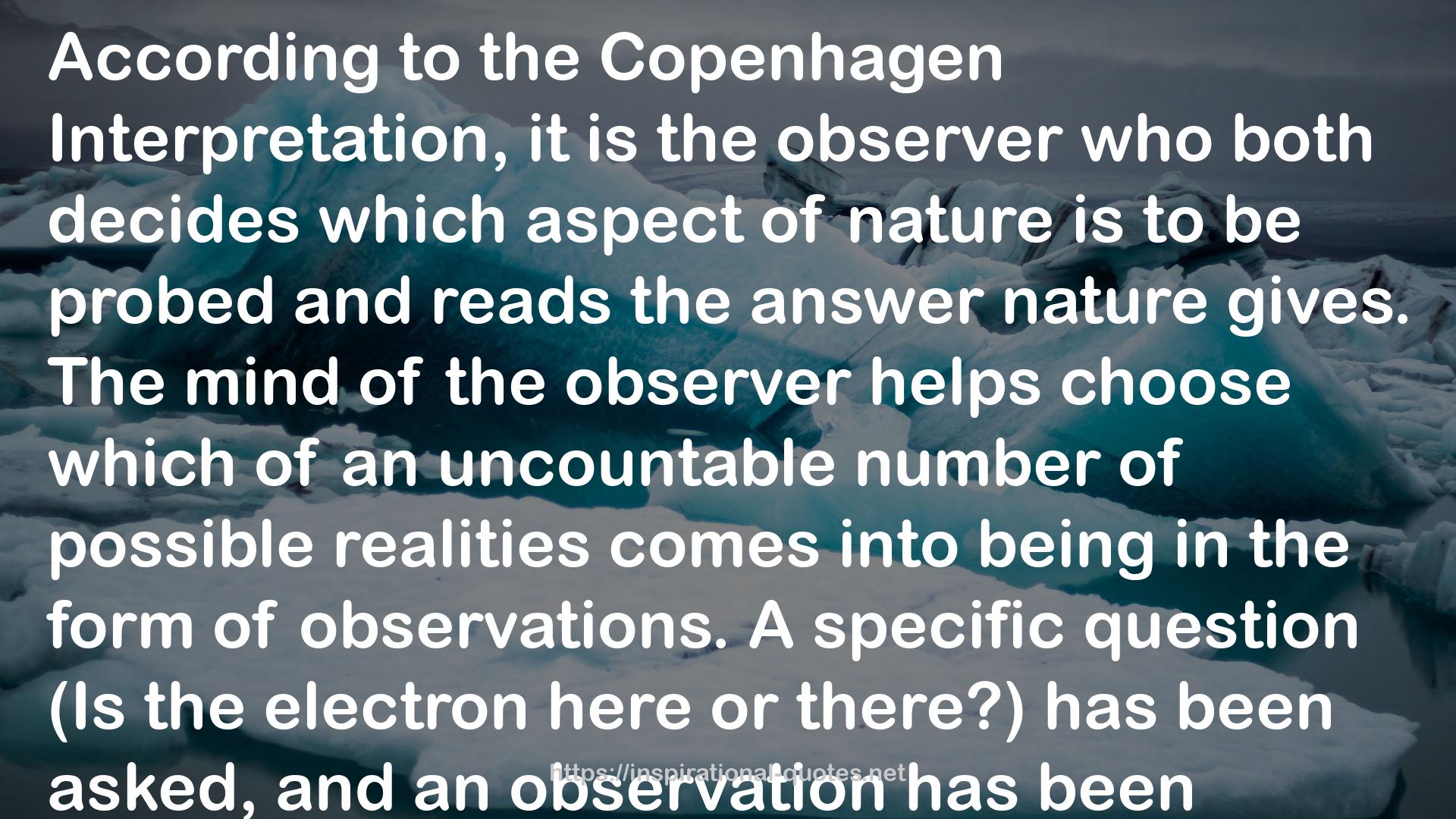" According to the Copenhagen Interpretation, it is the observer who both decides which aspect of nature is to be probed and reads the answer nature gives. The mind of the observer helps choose which of an uncountable number of possible realities comes into being in the form of observations. A specific question (Is the electron here or there?) has been asked, and an observation has been performed (Aha! the electron is there!), corralling an unruly wave of probability into a well-behaved quantum of certainty. Bohr was silent on how observation performs this magic. It seems, though, as if registering the observation in the mind of the observer somehow turns the trick: the mental event collapses the wave function. Bohr, squirming under the implications of his own work, resisted the idea that an observer, through observation, is actually influencing the course of physical events outside his body. Others had no such qualms. As the late physicist Heinz Pagels wrote in his wonderful 1982 book The Cosmic Code, “There is no meaning to the objective existence of an electron at some point in space… independent of any actual observation. The electron seems to spring into existence as a real object only when we observe it!” Physical theory thus underwent a tectonic shift, from a theory about physical reality to a theory about our knowledge. Science is what we know, and what we know is only what our observations tell us. It is unscientific to ask what is “really” out there, what lies behind the observations. Physical laws as embodied in the equations of quantum physics, then, ceased describing the physical world itself. They described, instead, our knowledge of that world. Physics shifted from an ontological goal—learning what is—to an epistemological one: determining what is known, or knowable. As John Archibald Wheeler cracked, “No phenomenon is a phenomenon until it is an observed phenomenon.” The notion that the wave function collapses when the mind of an observer registers a new bit of knowledge was developed by the physicist Eugene Wigner, who proposed a model of how consciousness might collapse the wave function—something we will return to. But why human consciousness should be thus privileged has remained an enigma and a source of deep division in physics right down to today. "
― Jeffrey M. Schwartz , The Mind and the Brain: Neuroplasticity and the Power of Mental Force
